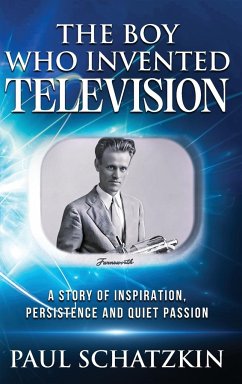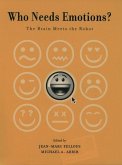A MUST READ FOR ANYBODY WHO WATCHES TELEVISION! (Reissued in 2023 with a fresh Foreword and Afterword) In the 1920s, while the great minds of science - financed by the biggest companies in the world - wrestled with 19th century solutions to a 20th century problem, 14-year-old Philo T. Farnsworth dreamed of trapping light in an empty jar and transmitting it, one line a time, on a magnetically deflected beam of electrons. Every video screen on the planet today can trace its origins to a sketch that Farnsworth drew for his high-school science teacher in 1922. Five years later, on September 7, 1927, electronic video arrived on the planet in his makeshift laboratory in San Francicso. In 1930, Philo Farnsworth was awarded the fundamental patents for modern television. He spent the next decade perfecting his invention, fighting off legal challenges from the giant Radio Corporation of America, and defending his entrepreneurial vision of an independent company that could fund even greater advances with the millions that his patents were sure to earn. Based on the theories first expressed by Albert Einstein, Farnsworth's invention was more than an improvement on the things that had gone before it. His contribution was a breakthrough of epic proportions. His first patents made obsolete everything that had gone before and made possible everything that has come since - from ultra-high-definition, flat-panel displays to smartphones. He predicted many of those advancements decades before they were delivered. In the second half of his life, Farnsworth used the unique knowledge he'd acquired in his laboratory to develop a novel approach to the Holy Grail of modern science - clean, safe, an abundant energy from nuclear fusion, the fundamental reaction that powers the Sun and stars. Though largely lost to the annals of popular history, this is the absolutely true story of a once-in-a-century individual whose unprecedented genius is reawakened every time we turn on a TV. - - - Kudos for the first edition (2002/2004): The Best Biography of Philo and the Inventing of TV! As a entrepreneur I appreciate the struggle Philo went through trying to get his invention of television funded and seeded into the marketplace. I recommend this book to anyone who has an idea or invention they want to bring into the marketplace. - Rod M. - - - Here is a book that will draw you in and keep you going. A tale of truth about how the television got started. When you think of t.v., we have to also think of computers and other things that have come from the technology developed from the television. A very, very good book. - Aunt Em - - - A riveting story. I also got the sense, with all the references and footnotes, that this was a carefully researched book. Being an electrical engineer myself, I appreciated that there was enough technical information without loosing the understanding of lay readers. I found none of the technical blunders that often appear in biographies of technical wizards. In this book, it becames clear that there are technological breakthroughs that can only come from a great mind, and not from the "inevitable" march of technology. - Joseph S. - - - I really enjoyed this engaging biography. The science of the book was mostly understandable to a layperson, and I found myself rooting for Farnsworth all the way. I could really sympathize with his triumphs and his losses, and I was so saddened and angry at the way he was treated toward the end of his life. It seems a real shame that he has not gotten the recognition he deserves, and I'm glad this book is out to give him his due. -Tanya W.








